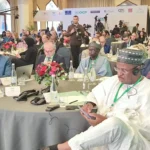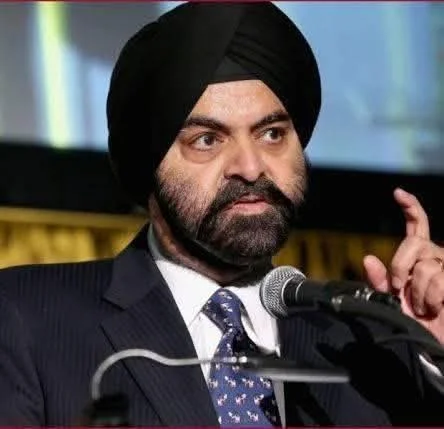By Kadiri Abdulrahman
The World Bank is developing the International Finance Corporation (IFC2030) strategy to strengthen private capital mobilisation, its President Ajay Banga, said in Washington DC.
Banga, who was speaking during the plenary of the annual meeting of the bank, said that such reforms were the foundation towards achieving the overall mission of job creation.
According to him, most jobs, nearly 90 per cent, ultimately come from the private sector.
“But they don’t all begin there. Countries move along a continuum: Early on, the public sector drives job creation; over time, private capital and entrepreneurship take the lead.
“But the private sector, whether large or small, local or global, cannot do it alone. Entrepreneurs need the right conditions to start, grow, and hire.
“Those conditions do not happen by accident. This is where the World Bank Group brings something unique through our three-pillar strategy,” he said.
He said that in the first strategy, governments lead, often with input from the private sector, to build the human and physical infrastructure that underpins opportunity.
He listed such infrastructure to include roads, ports, electricity, education, digitisation and healthcare.
“Our public arms, IBRD and IDA, finance these investments and help countries use resources effectively, and establish public-private partnerships.
“Second, a business environment with clear rules, a level playing field, and sound economic management.”
According to him, that means secure land rights, predictable taxes, transparent institutions, as well as responsible debt management and exchange rate policies.
“We support these reforms alongside the IMF through our Knowledge Bank, using policy tools and performance-based financing.
“Third, once the basics are in place, we help the private sector scale and reward risk-taking through IFC and MIGA, providing capital, equity, guarantees, and political risk insurance, backed up by ICSID,” he said.
Banga said that the World Bank had identified five sectors with potential to create jobs.
He listed the sectors as infrastructure and energy, agribusiness, healthcare, tourism, and value-added manufacturing, including crucial minerals.
According to him, these are not aid-dependent sectors, but engines of growth capable of generating locally relevant jobs without displacing work from developed economies.
“And they help build the middle class that will fuel tomorrow’s global demand, including goods and services from developed markets,” he said.
He said that over the past two years, the World Bank had launched a set of strategic initiatives across many of these sectors.
He said that they were not siloed plans.
“They reinforce one another and bring together the full breadth of the World Bank Group, alongside partners. Because it will take all of us working in concert to deliver results at scale.
“Our electricity strategy focuses on accessibility, affordability, and reliability, while managing emissions responsibly.
“It powers Mission 300, our effort to connect 300 million Africans to electricity by 2030.
“Countries have the flexibility to choose what fits their needs and context—whether upgrading grids or installing solar, wind, hydro, gas, and geothermal,” he said.
He said that the group had also begun the work, in partnership with the IAEA, to offer nuclear support for the first time in decades.
According to him, the goal is to garner enough power to drive productivity for people and businesses.
“We have set a goal to help deliver healthcare for 1.5 billion people.
“This December, we will bring together governments, investors, and innovators at a summit in Tokyo to drive the agenda forward.
“Indonesia is already leading the way, committing to provide every citizen with an annual primary care visit on their birthday, an approach that could reshape the future of healthcare for 300 million people.” (NAN)(www.nannews.ng)
Edited by Isaac Aregbesola












